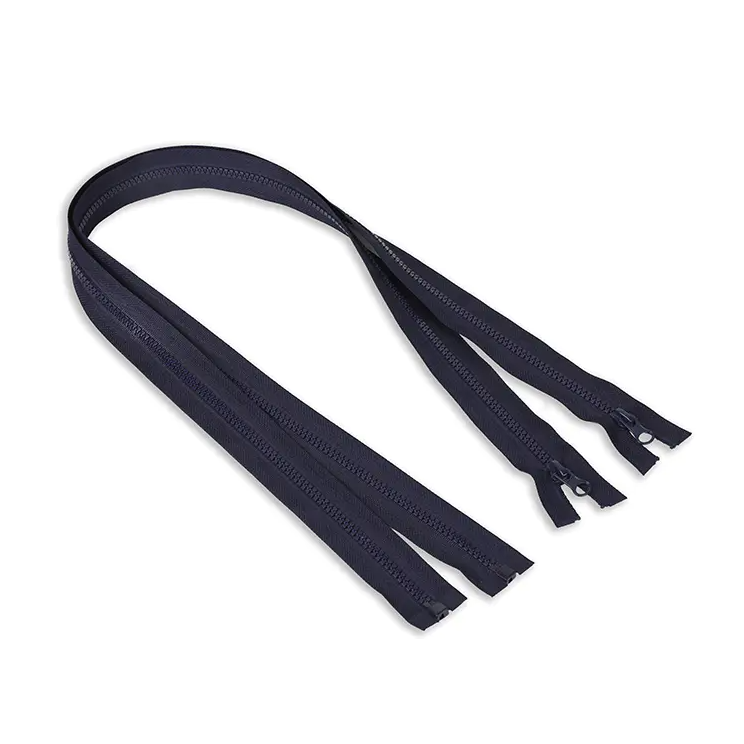Resin zippers have become an increasingly popular choice in various industries due to their combination of durability, flexibility, and ease of use. Made from plastic resins, these zippers offer several advantages over traditional metal zippers, making them a go-to fastening solution for many products, including bags, clothing, and outdoor gear. While they are often used in fashion and accessories, resin zippers have also found applications in industries that require durability and resistance to the elements.
One of the primary advantages of resin zippers is their resistance to corrosion. Unlike metal zippers, which can rust or corrode over time, resin zippers remain unaffected by exposure to moisture and harsh environmental conditions. This makes them particularly suitable for use in outdoor equipment, such as tents, jackets, and backpacks, where items are frequently exposed to rain, snow, or humidity. Resin zippers can withstand these conditions, helping to ensure that the fasteners remain functional and secure for longer periods.
In addition to their corrosion resistance, resin zippers are also lightweight and easy to handle. Their plastic composition makes them lighter than metal zippers, which can be a significant advantage in products where weight is a concern, such as in hiking gear, luggage, or athletic wear. This lightweight feature makes resin zippers ideal for reducing the overall weight of products, contributing to the comfort and convenience of the user.
The smooth operation of resin zippers is another reason they are favored in many applications. With fewer chances of snagging or jamming compared to their metal counterparts, resin zippers provide a more seamless experience. This is particularly beneficial for items that need to be opened and closed frequently, such as bags and jackets. The smooth functionality makes them easy to use and reduces the frustration that can arise from stiff or faulty zippers.
Another notable feature of resin zippers is their versatility in design. They are available in various colors and sizes, making them suitable for a wide range of products, from casual fashion items to heavy-duty outdoor equipment. Resin zippers can be customized to match the design or branding of a product, offering aesthetic appeal while maintaining the functional benefits of a durable zipper. This versatility also makes them suitable for use in a range of materials, such as nylon, polyester, and cotton, further expanding their application across different sectors.
Resin zippers are also known for their ability to resist wear and tear over time. The plastic material used in these zippers is highly resistant to abrasion, meaning that the teeth of the zipper can maintain their shape and integrity even with frequent use. This durability ensures that resin zippers have a longer lifespan compared to traditional zippers, making them a cost-effective option for both manufacturers and consumers.
In conclusion, resin zippers offer a range of benefits that make them a practical choice for a variety of products and industries. Their resistance to corrosion, lightweight construction, smooth operation, and design versatility provide a reliable and durable fastening solution. Whether used in outdoor gear, fashion accessories, or everyday items, resin zippers contribute to both the functionality and longevity of the products they are incorporated into. As demand for durable and efficient fastenings continues to grow, resin zippers are likely to remain a popular choice for many applications.

